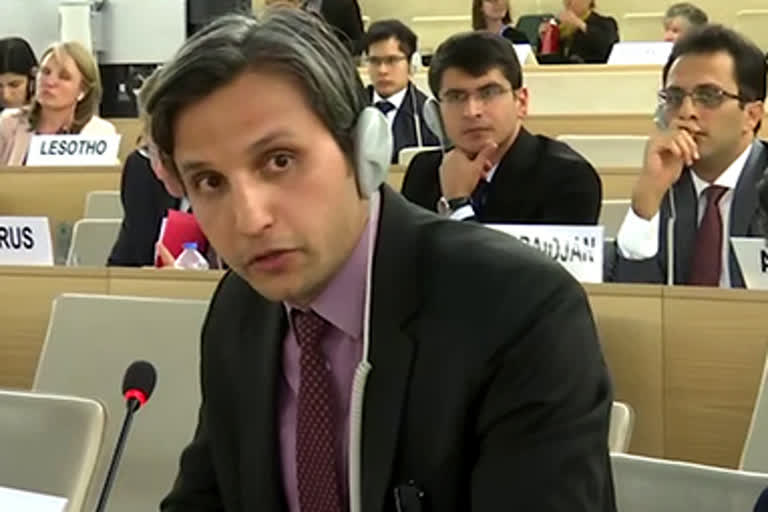Geneva: When Pakistani delegation led by Foreign Minister Shah Mehmood Qureshi presented their 'fabricated narrative' over Kashmir issues in the UN Human Rights Council, it was a diplomat from Jammu and Kashmir, Vimarsh Aryan who rebutted Islamabad's charges with full throttle.
Replying to Pakistan's charges, Aryan, first secretary in India's permanent mission to the UNHRC in Geneva said that it was "an ill-disguised effort to advance its territorial ambitions" and Islamabad forgot that terrorism is the worst form of human rights abuse.
Vimarsh Aryan, first Secretary in the ministry of external affairs said that he had been forced to take the floor to call out the "blatant is a representation of facts and false narrative peddled by Pakistan in all its statements today."
"This is an ill-disguised effort to advance its territorial ambitions. We reject this propaganda. We are not surprised at Pakistan's hysterical statements with false, fabricated narratives aimed to politicise and polarize this forum," he said.
"Jammu and Kashmir has been, is and shall continue to be an integral part of India and Pakistan's nefarious designs will never succeed," he added.
"It defies credibility that Pakistan, which is the epicentre of global terrorism is claiming to speak on behalf of unnamed countries on the issue of human rights. It forgets that terrorism is the worst form of human rights abuse," he said.
Aryan referred to call for 'Jihad' and to encourage violence both inside Jammu and Kashmir and in third countries.
"Islamabad's gory record speaks for itself. This rhetoric will not distract international attention from Pakistan's persecution and elimination of religious and ethnic minorities, be it the Christians, Sikhs, Shias, Ahmadiyas, and Hindus. This is the reason that Pakistan no longer publishes official statistics about its minorities as India does," he said.
He said that Article 370 was a temporary provision of the Indian Constitution and the recent modification was within our sovereign right and entirely an internal matter of India.
"The decision removed impediments to the enjoyment of civil, political, social, economic and cultural rights of our citizens in Jammu and Kashmir and Ladakh, especially those dealing with women, children and disadvantaged sections of our society in that region," he added.
